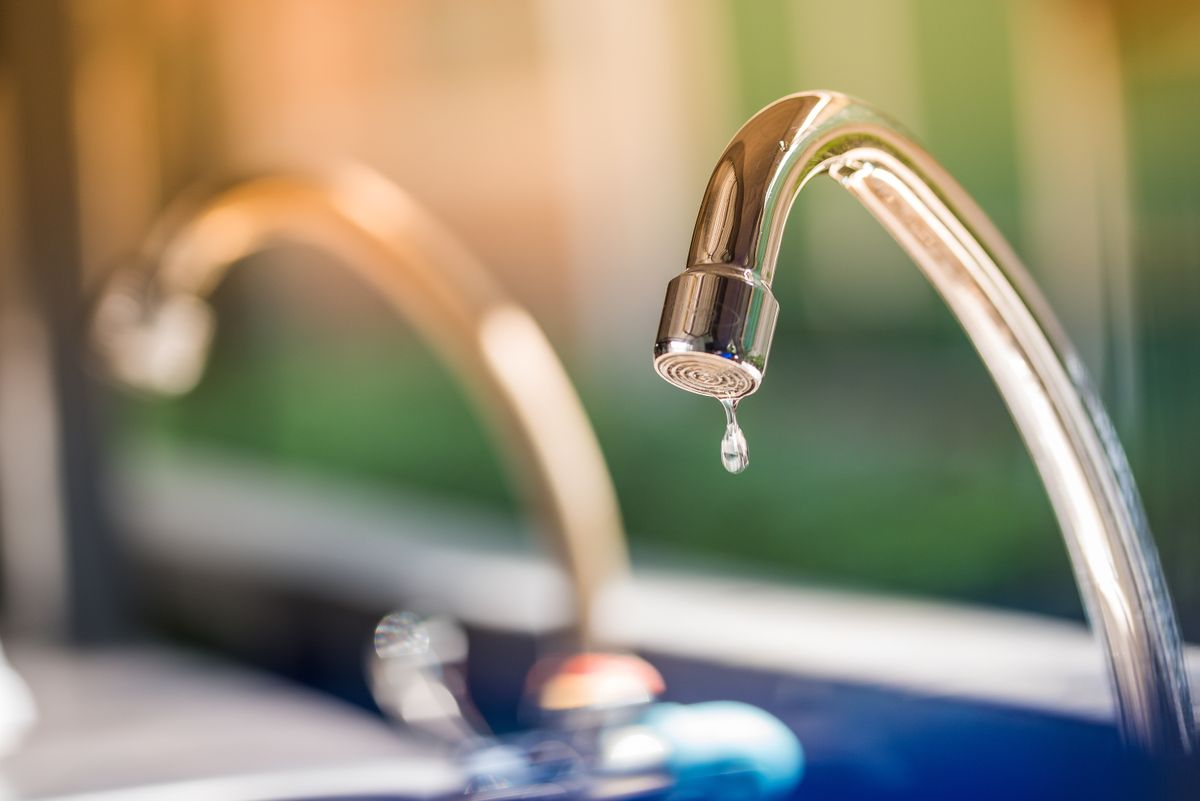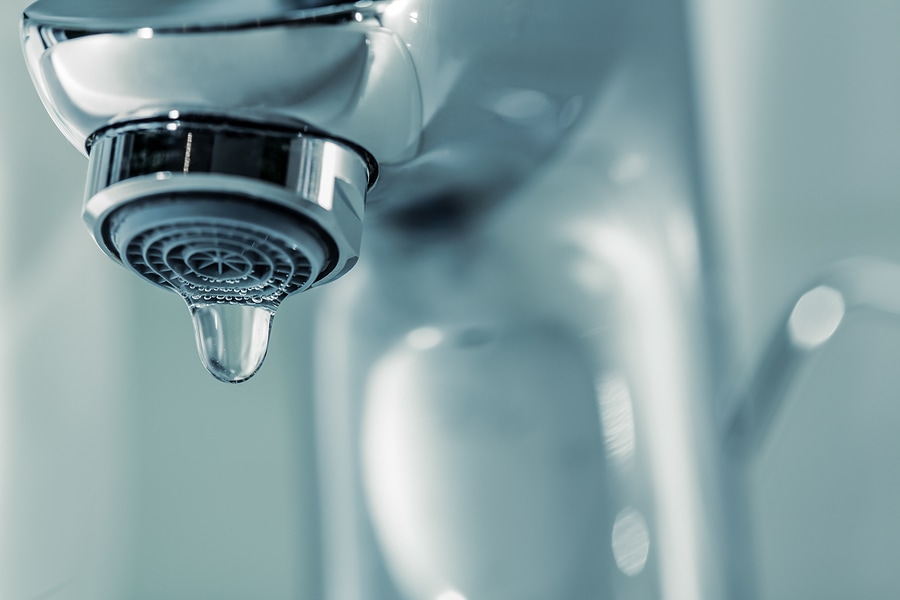Our Motives Behind Addressing a Leaking Faucet
Our Motives Behind Addressing a Leaking Faucet
Blog Article
The writer is making a number of good observations about Why It's Important to Fix Leaky Faucets as a whole in the content beneath.

Leaking faucets could seem like a minor trouble, yet their influence surpasses simply the nuisance of the noise. From wasting water to incurring unnecessary economic costs and health threats, overlooking a leaking faucet can lead to numerous repercussions. In this article, we'll look into why it's vital to resolve this common house problem promptly and successfully.
Wastage of Water
Ecological Impact
Leaking taps contribute significantly to water waste. According to the Environmental Protection Agency (EPA), a solitary faucet leaking at one drip per second can squander greater than 3,000 gallons of water annually. This not only pressures water resources yet also impacts ecosystems and wildlife dependent on them.
Financial Expenses
Boosted Water Costs
Past the ecological effect, leaking taps can pump up water expenses significantly. The collected wastefulness in time equates into higher utility costs, which can have been avoided with timely repairs.
Potential Residential Property Damages
Additionally, prolonged dripping can bring about harm to components and surface areas bordering the faucet. Water accumulation can trigger discoloration, rust, and even structural issues if left neglected, causing additional repair prices.
Health and wellness Problems
Mold and Mildew Growth
The continuous existence of wetness from a leaking faucet creates an excellent setting for mold and mildew development. These fungis not only jeopardize interior air high quality but also present health and wellness risks, particularly for people with breathing problems or allergies.
Waterborne Conditions
Stationary water in trickling faucets can become a breeding place for bacteria and various other microorganisms, increasing the danger of waterborne conditions. Impurities such as Legionella bacteria grow in stagnant water, possibly resulting in significant ailments when ingested or breathed in.
Do it yourself vs. Professional Fixing
Advantages and disadvantages of Do It Yourself Repair
While some might attempt to repair a dripping faucet themselves, do it yourself fixings come with their own collection of challenges. Without proper understanding and devices, do it yourself efforts can exacerbate the issue or result in incomplete repair work, extending the issue.
Advantages of Employing an Expert Plumber
Employing a professional plumber guarantees that the underlying reason for the dripping tap is attended to efficiently. Plumbing technicians possess the expertise and tools to identify and repair tap concerns effectively, saving time and decreasing the danger of additional damage.
Step-by-Step Overview to Taking Care Of a Dripping Faucet
Tools Required
Prior to attempting to repair a leaking tap, gather the necessary devices, including an adjustable wrench, screwdrivers, substitute components (such as washers or cartridges), and plumber's tape.
Usual Tap Issues and Their Solutions
Recognize the sort of tap and the details concern causing the drip. Typical issues consist of damaged washing machines, corroded shutoff seats, or faulty O-rings. Refer to supplier instructions or on-line tutorials for step-by-step assistance on repair services.
Safety nets
Routine Maintenance Tips
To avoid leaking taps, do routine maintenance such as cleaning up aerators, checking for leakages, and changing damaged components promptly. In addition, take into consideration mounting water-saving tools or updating to a lot more effective fixtures.
Significance of Prompt Services
Addressing dripping taps as quickly as they're observed avoids further water wastage and potential damage, eventually saving both water and money in the future.
Effect On Building Worth
Perception of Well-Maintained Home
Maintaining a residential or commercial property in good condition, consisting of dealing with upkeep issues like dripping taps, improves its perceived value and worth among possible buyers or renters.
Impact on Resale Value
Characteristics with properly maintained plumbing components, including faucets, command greater resale worths in the real estate market. Dealing with dripping faucets can add to a favorable impact during home assessments and arrangements.
Environmental Obligation
Private Payment to Preservation
Taking duty for fixing dripping taps straightens with wider efforts toward water preservation and ecological sustainability. Every person's activities collectively make a significant influence on preserving precious resources.
Lasting Living Practices
By focusing on timely repair services and taking on water-saving habits, individuals contribute to lasting living techniques that profit both existing and future generations.
Verdict
Addressing a trickling tap exceeds simple ease; it's an important action towards saving water, reducing economic expenses, and protecting wellness and property. Whether with DIY repair work or professional help, taking action to deal with leaking taps is a small yet impactful means to advertise liable stewardship of resources and add to a healthier, a lot more sustainable future.
How to Fix a Leaky Faucet: Step-by-Step Repair Guide
A leaky faucet may seem like a simple annoyance, but if it's not fixed promptly, that leak could cost hundreds to potentially thousands. From water damage to mold, mildew, and high water bills, even a tiny leak can be catastrophic if left unattended. Damage like this can even affect the overall value of your home, so it's important to take the right approach for leaky faucet repair. You may need the help of a plumber in some cases, but we've got a few tips you can try on how to fix a leaky faucet before calling the pros.
Four Faucet Types
When you're learning how to fix a leaky faucet, the first step is knowing what kind of faucet you're working with! There are four common types.
Cartridge Faucets
Cartridge faucets come in one- or two-handled varieties. In one-handled cartridge faucets, hot and cold water combines in a single cartridge. In the two-handled versions, hot and cold water are controlled separately and mixed in the faucet.
Ball Faucets
Ball faucets have a single lever you push up and down to adjust the pressure and rotate to change the temperature. A slotted metal ball controls the amount of water allowed into the spout.
Compression Washer Faucets
They're the oldest type of faucet, but they're still used in many homes — especially older ones. Compression faucets have two separate handles that, when turned, raise or lower the washer that seals a water valve. This valve stops water from flowing through the faucet when it is turned off.
Disc Faucets
Disc faucets rarely need to be repaired due to their maintenance-free design. The water flow is controlled by two discs — the upper one raises and lowers against a fixed lower disc, creating a watertight seal. If your disc faucet starts leaking, you may need to replace the seals or clean residue buildup from the inlets.
Fixing a Leaky Faucet
Step 1: Turn Off the Water
Whether you're learning how to fix a leaky bathtub faucet or how to fix a leaky kitchen faucet, always turn off the water supply to your working area when you're fixing a leak. The last thing you want is a flood added to your list of things to fix.
Look for the shutoff valves below your sink or around the tub and turn them clockwise to stop the water flow. If your faucet doesn't have shutoff valves, you may need to turn off the water for the whole house. Check to make sure it's off by turning the faucet on. If nothing comes out, you're ready to start the repair.
Step 2: Take Apart the Faucet
How you disassemble your faucet depends on the type of fixture you have. You can use a flathead screwdriver to remove the caps on top of the handle or handles for cartridge and compression faucets. Inside, you should see handle screws. Unscrew these with a screwdriver to remove the handle.
Disc- and ball-style faucets will typically have an inlet screw near the handle, and removing that will reveal the interior of the faucet.
Detach the Valve Stem
For cartridge- and compression-style faucets, you'll see the inner valve stem or cartridge once you remove the faucet handles. If you have a compression faucet, unscrew the brass valve stem. If you have a cartridge faucet, pull out the cartridge. If your cartridge has been in place for a while, it may require some tools or extra force to remove it due to mineral deposits.
Examine and Replace Parts
Once you've removed the parts, check them out to confirm what needs to be replaced. You may see corroded rubber washers, O-rings, stems, or cartridges. On a ball-style faucet, check the seats and springs for damage.
If you need to repair a leaky disc faucet, check the inlet and seals on the lower disc.
Once you determine what parts must be replaced, visit your local hardware store. Bring the damaged parts with you to ensure you can purchase the correct components to replace them.
Clean Valves and Faucet Cavity
If you've removed a stem or cartridge, you may notice mineral buildup in the faucet's threads. Use white vinegar to clean the valve seat by soaking it for a few minutes, then scrub it away with a soft toothbrush and rinse with warm water. You can also clean the interior of the faucet in the same way.
Reassemble the Faucet
Once your faucet is cleaned and the required parts have been replaced, it's time to reassemble it. Put the pieces back together and slowly turn the water supply back on. Doing this slowly is crucial because too much initial water pressure can damage the new hardware you've just installed.
https://homewarranty.firstam.com/blog/how-to-fix-leaky-faucet

I have been very intrigued by Why Are My Faucets Dripping (And Can I Fix It Myself)? and I hope you enjoyed our article. Liked our article? Please share it. Help somebody else discover it. I appreciate your readership.
Report this page